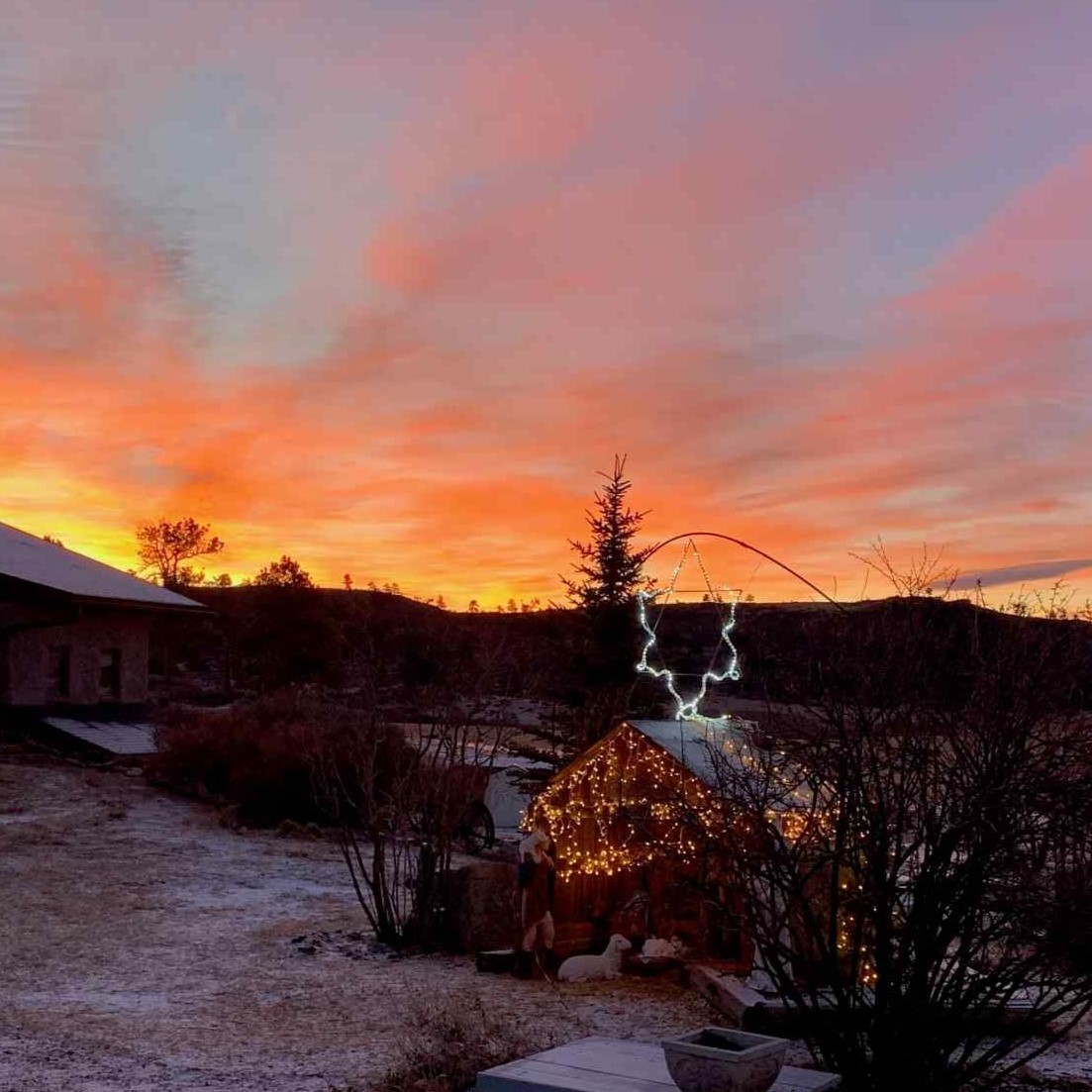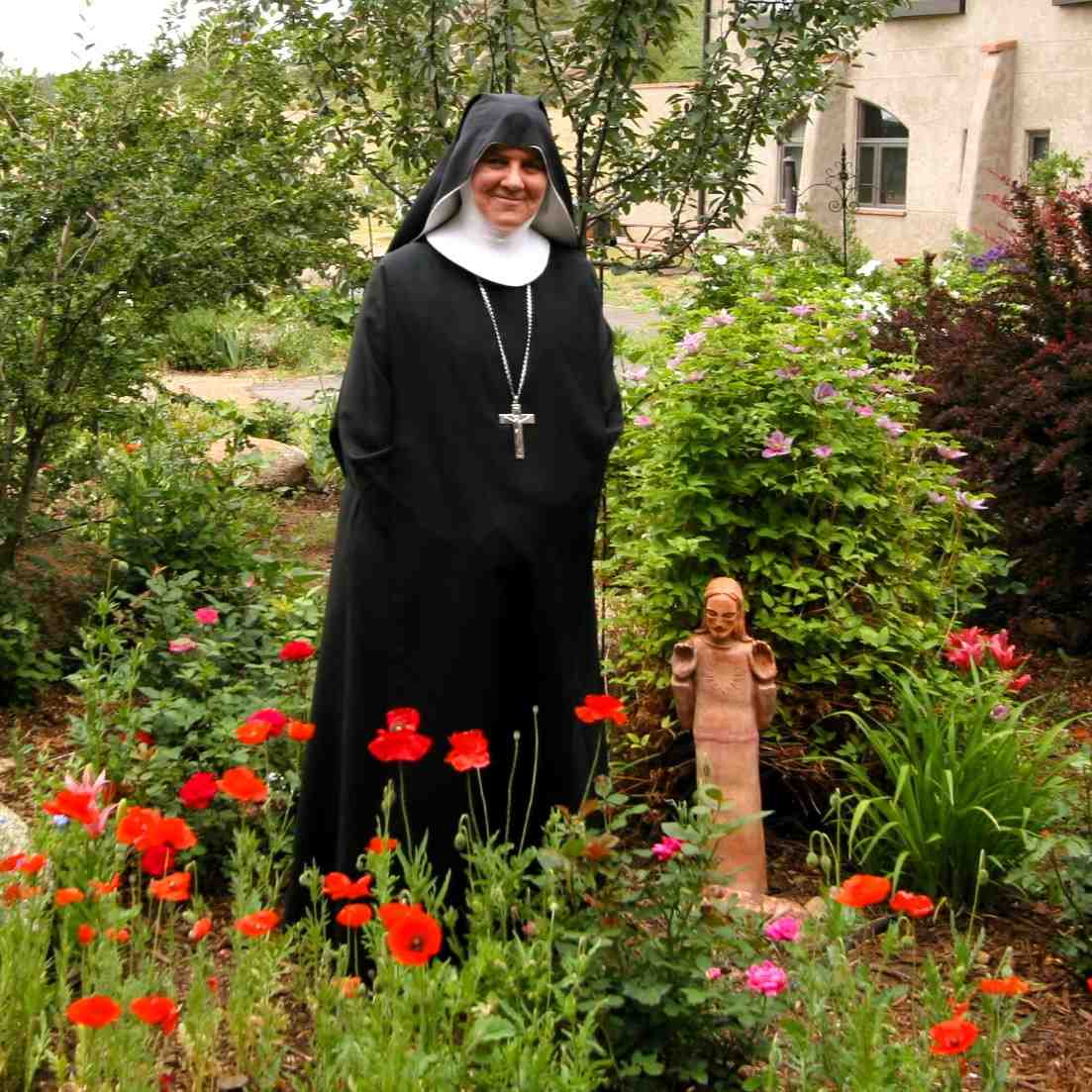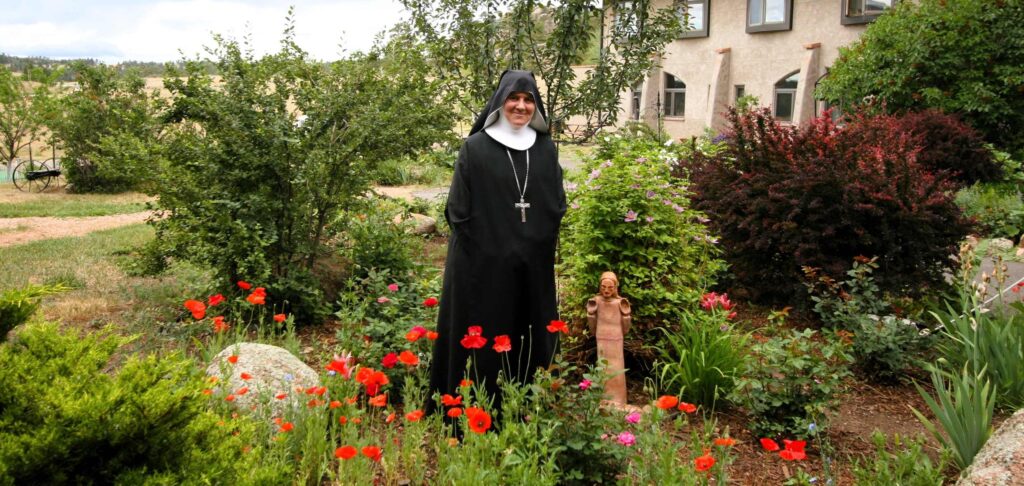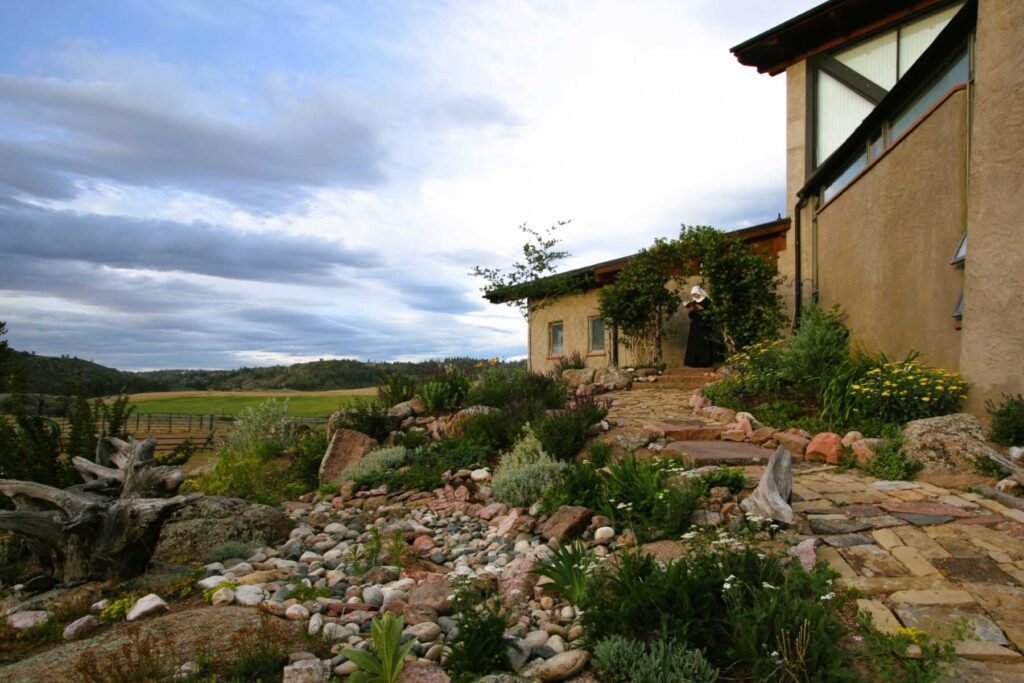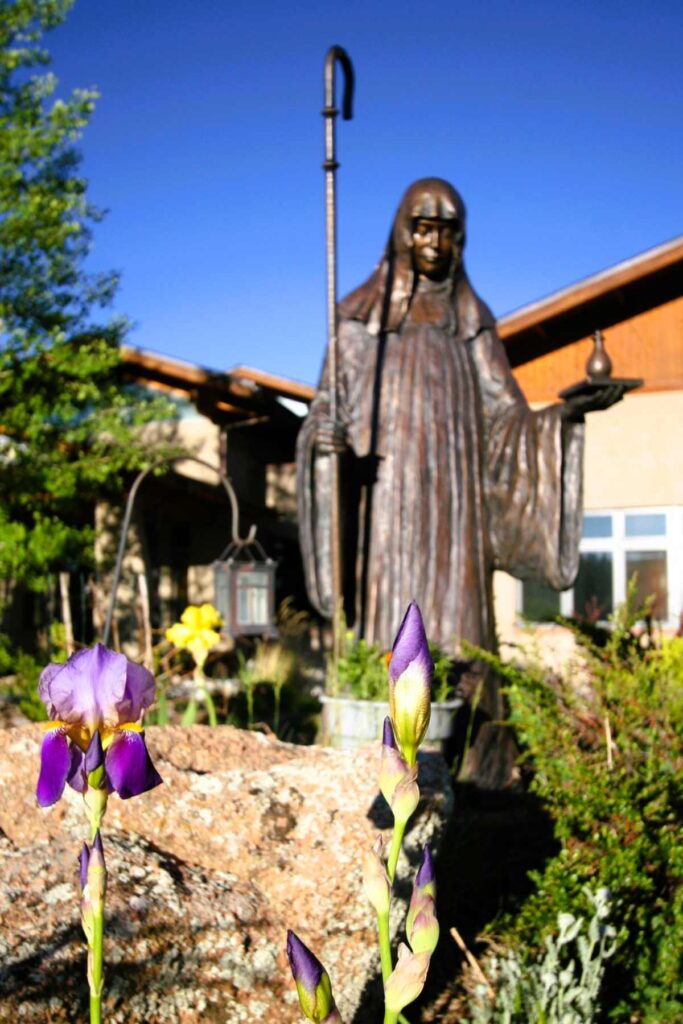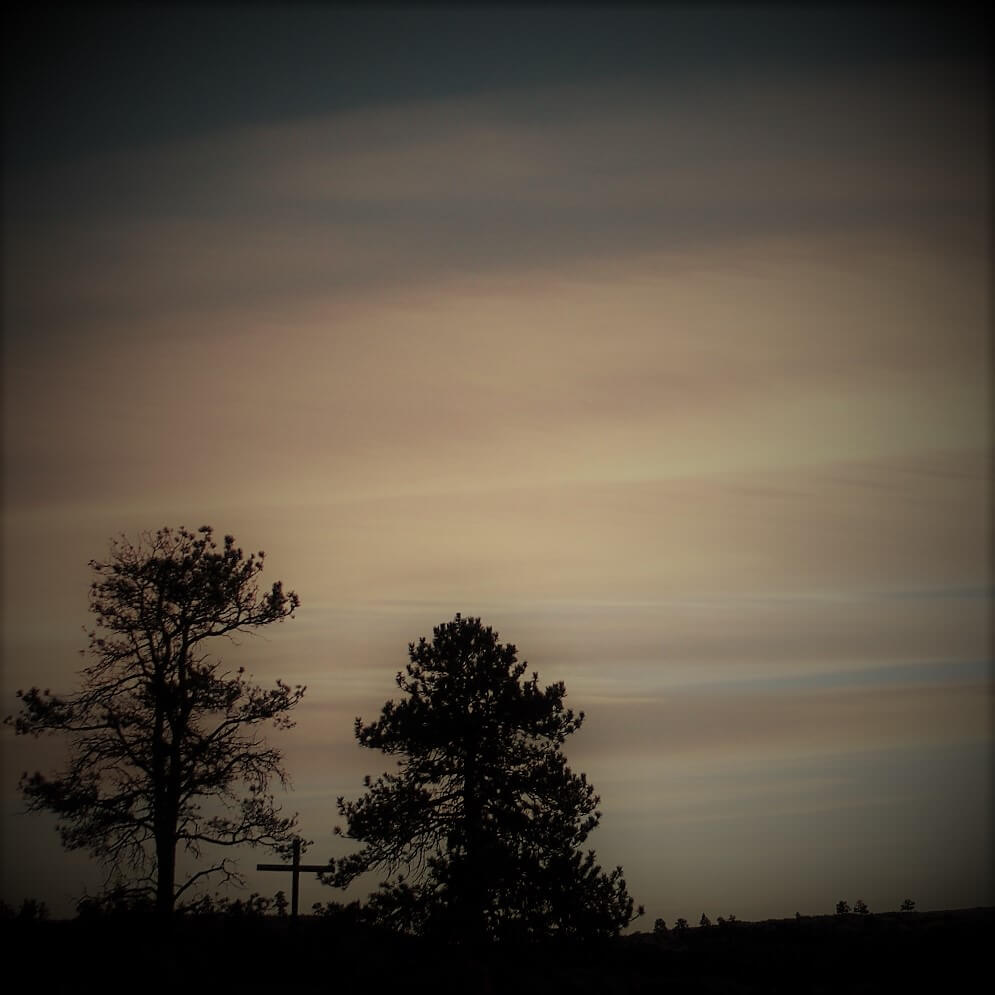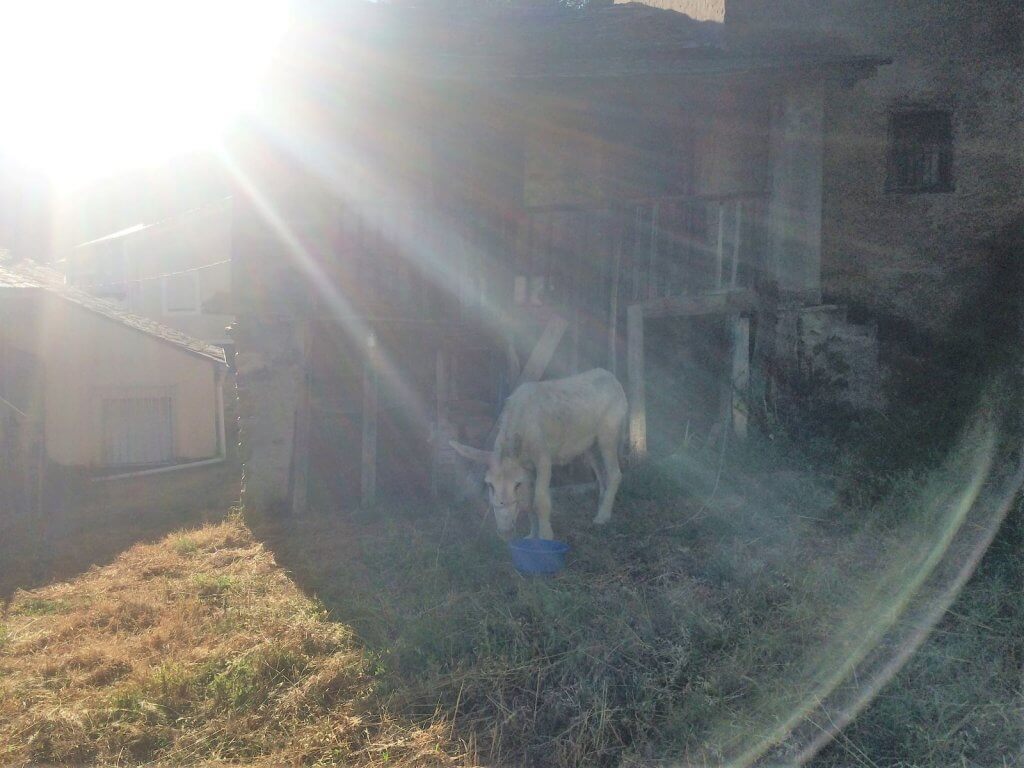A reflection by our Abbess, Mother Maria-Michael Newe, OSB, on the conclusion of the Christmas Season
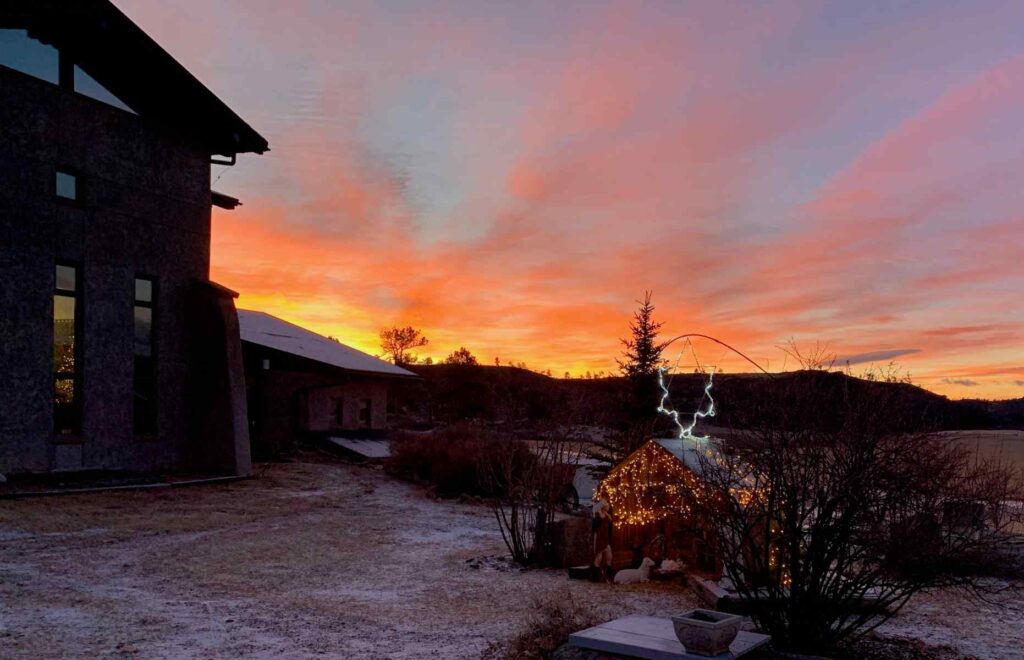
The Outdoor Nativity Scene at the Abbey of St. Walburga
In the gospel reading at Mass on Saturday in Epiphanytide, we hear that “No one can receive anything except what has been given from heaven” (John 3:27). So all of those heavenly gifts that have come upon us this Christmas, we should really think of today. We should especially give thanks for the gift of Christ, the Bridegroom. Further on in the gospel reading from John it says, “The one who has the bride is the bridegroom” (John 3:29). That should stop us. That says absolutely everything. If we just had this one sentence for the rest of our life, it would be enough—Because He has us. Nobody can take us from Him. Relish the fact that we belong to Him.
On Christmas, the Bridegroom came to earth, “leaping across the hills” as the Song of Songs says, running to meet us, and peering through the lattices to make sure we’re here. The whole imagery of the Bridegroom coming is scattered throughout the scriptures, and it makes me think that Jesus must have loved weddings so much (His first miracle was performed at a wedding in Cana!) because it reminded Him of the joy of His role as the Bridegroom for His people. Seeing the love of a groom for his bride reminds Him of His love for His brides, and for His Bride, the Church. No matter what, Christ never stops loving His Church as a Bride. And we should take great joy and comfort in that. What everybody else thinks really is so small compared to what the Bridegroom thinks and feels. May we never despair of thinking that He loves us any less than His beloved bride. Keep this in mind, and you can’t have a bad day: The bride has the Bridegroom.

